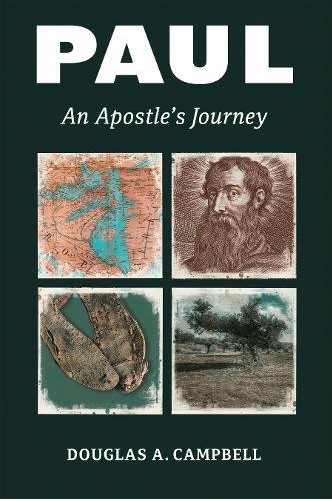With these three summaries now on the table, and with some fine clarifications by others, I wish now to state what we have to do when we start talking about the “New Perspective” because I’m hearing lots of things that I think are gross distortions. Simon Gathercole’s piece in CT is a nice summary; I have only little quibbles with it but I have more than quibbles with what I sometimes hear.
There is no official “New Perspective Institution” or “NP Denomination” that filters everything through a grid to make sure it is sound. What Jimmy Dunn called “the new perspective” was a trend emerging out of the re-discovery of Jewish sources and how Paul fit into how people were re-construing Judaism. But, there is a wild diversity out there of people who have plowed their own furrow. Please avoid saying the “New Perspective” says “X.” Try to connect with a name as much as possible.
Second, the only “new perspective” I know that can be said to be represented across the board is a new perspective on “Judaism.” There is a common thread: Israel was elected by God, brought into the covenant and given the law to regulate how covenant people live. Thus, Sanders’ covenantal nomism is a common thread — even if Dunn and Wright have modifications and differences with Sanders. Dunn’s and Wright’s modifications are really more than that: they have both investigated the Jewish sources themselves. And on top of them are all kinds of offshoots and variations, but there seems to me to be a general consensus that Judaism — and this is not the same as the “Judaizers” Paul went toe-to-toe with — was not a works-based religion but a covenant-based religion in which works played a prominent, sometimes more than other times, role.
Third, when it comes to Paul, there is wide variation in Sanders, Dunn and Wright. It is unfair to say these three are the same when it comes to what they think about Paul. I’m not sure there is such a thing as “The” New Perspective on Paul. Those who say this aren’t reading the books of these authors. Sometimes they are drawing unities that don’t exist. To speak of a unified theory of Paul in a New Perspective is inaccurate. What I’m hearing today is mostly criticism of NT Wright; what is being said about Wright would not always be applicable to Dunn and Sanders. Which means, perhaps most importantly for theological debates ….
Fourth, there is no real “systematic theology” at work in this New Perspective on Paul. Much of the criticism I’m hearing attributes what “New Perspective” folks believe at the level of systematic theology. Sanders doesn’t care about this; Jimmy Dunn is not a systematician; and Wright isn’t really one either — they are biblical theologians and historians. NT Wright, of course, is the Bishop of Durham and that means he’s Anglican — and if anyone knows what systematic theology that is you’ll have to tell us, but the 39 Articles really isn’t a “systematic theology.” Let’s not forget this. To suggest there is a systematic theology at work here, and to suggest there is one systematic theology at work, is poppycock. Most of what I hear at this level is an invention by those who infer what the systematic theology would look like if Sanders and Dunn and Wright composed one. It is never wise to make up a theology and then criticize it.
Fifth, the NPP does give rise to exegesis of Paul that, however, can lead to some major shifting in theology and, in particular, how to understand salvation. Tomorrow I will give a final consideration and I hope it will give us something to understand.











